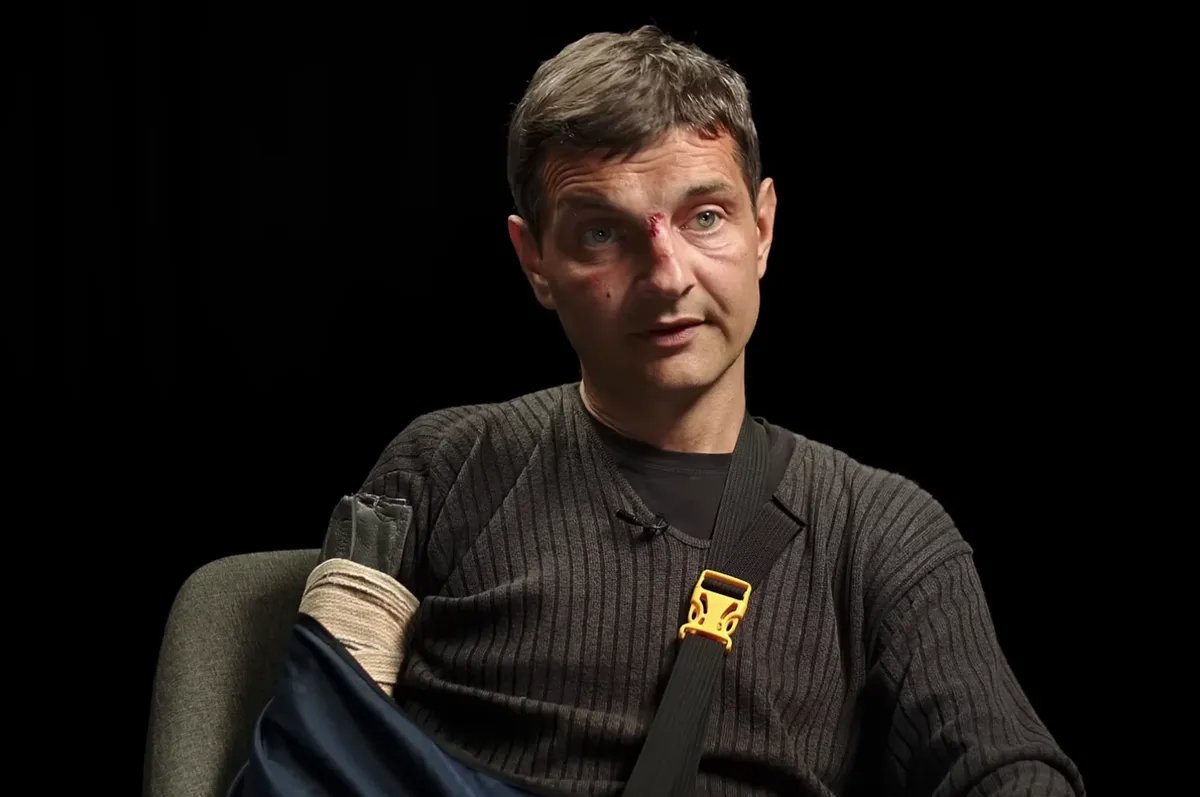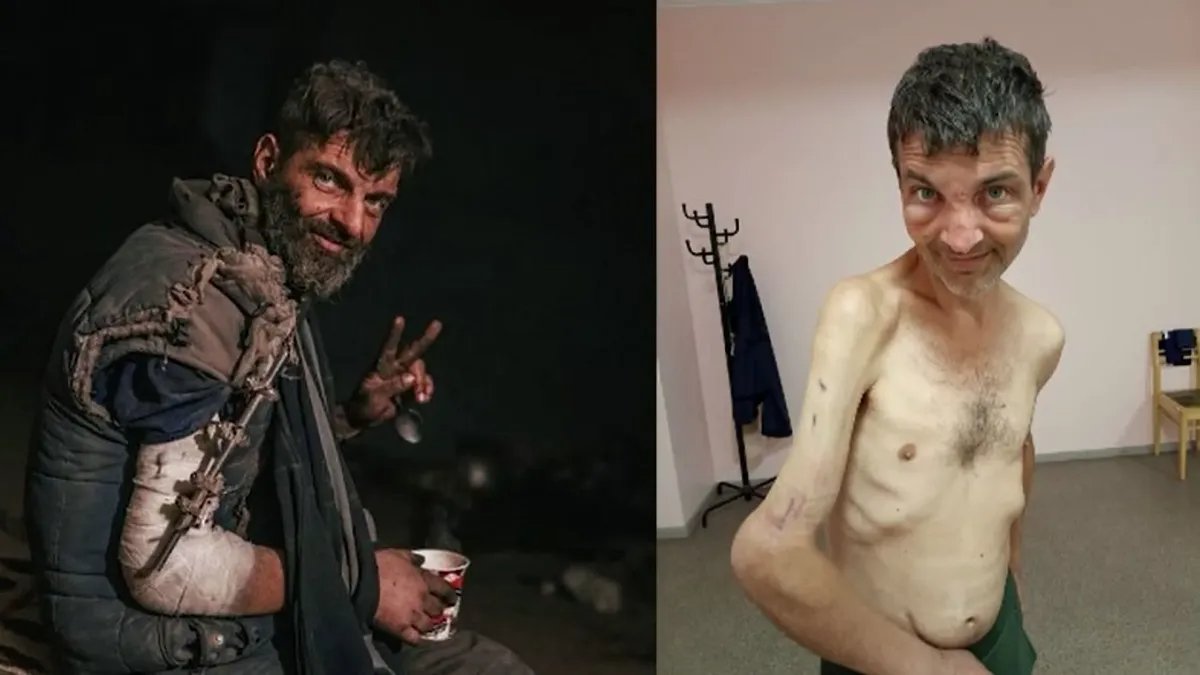Mykhailo Dianov, a sergeant of the 36th Separate Marine Brigade of the Armed Forces of Ukraine, talked about the torture he and other Ukrainian POWs suffered in Russian captivity in an interview with Front 18 YouTube channel.

Photo: a screenshot from the YouTube video published by Front 18
Dianov was captured in mid-May with other fighters defending the Azovstal steelworks in Mariupol.
According to him, Russian soldiers beat Ukrainian POWs with batons, tazed them and pushed needles under their nails.
“They beat us in the bus while they were taking us to the Investigative Committee. They beat us with their guns, with rifle stocks. For turning our heads the wrong way, for looking down the wrong way, for raising the hand wrong. I told them I couldn’t raise my hand. They punched me twice, and then they were like: ‘Oh, you can’t raise it.’ And they hit me for a third time,” Dianov said.
He also said that the POWs were fed with animal feed, water and cabbage “soup”, and small pieces of bread. They were given 30 seconds to eat everything. “If you want to destroy a person mentally and physically, just don’t give them anything to eat,” Dianov stated.

Photo taken from social media: Mykhailo Dianov before and after captivity
Dianov said that by the time he was captured, he had an external fixator on his broken arm after he was injured in battle. During an air raid, the man fell on his hand, bending the fixator, which made his bones grow together in a semicircle.
“The screw threads have gotten loose. There was no point in the fixator anymore. It needed to be taken off. I constantly had open wounds because of the pins sticking out, everything was rotting, the fixator got dislocated,” Dianov recalled, quoted by Meduza.
The man ended up at the Olenivka prison in the self-proclaimed Donetsk “people’s republic” along with other POWs. When explosions were reported at the prison, he was at a hospital in Donetsk, where a doctor took out his fixator using car wrenches and rusty pliers. “I asked him: ‘Maybe you can give me some kind of painkiller? This is usually done under anaesthesia.’ ‘We can inject you with Ketorolac,’ the doctor said,” Dianov recalled.
In late September, five commanders of the Azov battalion were swapped for 55 Russian POWs, while 200 more Ukrainian prisoners were exchanged for Viktor Medvedchuk, the leader of pro-Russian party Opposition Platform — For Life.
Yesterday, two US soldiers that fought on the side of Ukraine and were captured by the Russian army, talked about the torture they experienced in captivity. The men said they were interrogated, put under physical and psychological pressure. They were also malnourished and not given enough potable water.
“That was one of the worst parts. Hearing people being hurt and not being able to do anything about it,” Andy Tai Huynh, one of the captured soldiers, told The Washington Post.
The men added that when they were released, their hands and eyes were bound “excruciatingly tight” with packing tape for their flight to a Russian airstrip “in circumstances that they described as agonizingly painful but declined to detail fully”.
